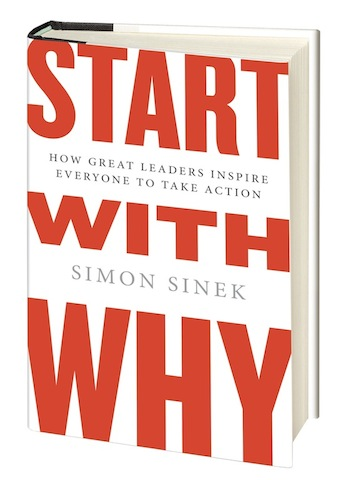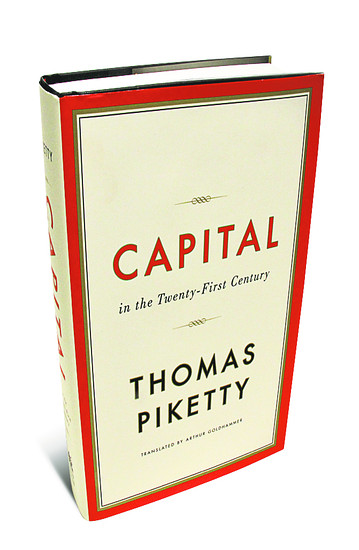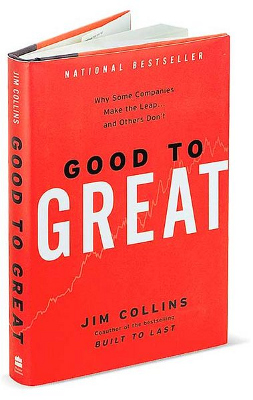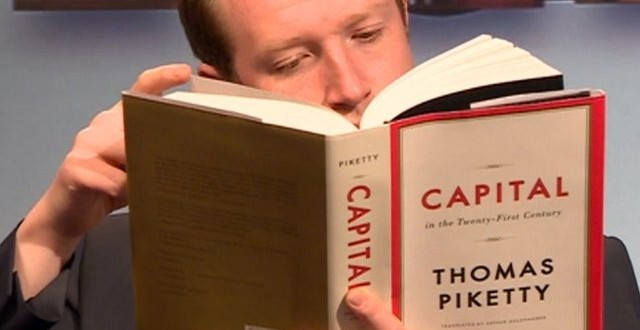Every so often, leading publications publish juicy lists of inspiring and educational texts. I have always perused them with interest, but more often than not failed to follow through on actually reading them.
According to George Miller, the average human can only hold in their working memory up to seven things, plus or minus two. Erring on the side of skepticism—and my own forgetfulness—there are five books I’m reading this summer that I suggest every aspiring leader should read, too. A combination of old, new, long, short, American, and international, I consider these five books to be a foundation for the future of leadership in 2014.
1) How can I stop wasting time?
Read: Essentialism: The Disciplined Pursuit of Less
Earlier this summer, I traveled to Brazil for a much-needed week-long vacation. I had planned to rest my brain and indulge in a mystery novel. Instead, I devoured Essentialism in 24 hours flat.
In his new book, Gregory McKeown provides an easy to read—and inspiring—framework to help aspiring leaders eliminate distractions and focus on what matters.
“When individuals are involved in too many disparate activities—even good activities—they can fail to achieve their essential mission. One reason for this is that the activities don’t work in concert, so they don’t add up into a meaningful whole… When teams are really clear about their purpose and their individual roles, on the other hand, it is amazing what happens to team dynamics…. So how do we achieve clarity of purpose in our teams and even our personal endeavors? One way is to decide on essential intent.”
Essential intent is only one of McKeown’s great lessons. The rest is well worth the 15 hours it will take you to breeze through these 274 pages.
2) Where do I begin?
Read: Start With Why: How Great Leaders Inspire Everyone to Take Action
 Three years ago, Simon Sinek published an exceptional book that cuts to the heart of why and how organizations and individuals motivate success and happiness.
Three years ago, Simon Sinek published an exceptional book that cuts to the heart of why and how organizations and individuals motivate success and happiness.
“The discovery of WHY completely changed my view of the world and discovering m yown WHY restored my passion to the degree multiple times greater than at any other time in my life. It was such a simple, powerful, and actionable idea, that I shared it with my friends. That’s what we do when we find something of value, we share it with the people we love. Inspired, my friends started making big life changes. In turn, they invited me to share this idea with their friends, the people they loved. And so the idea started to spread… The more organizations and people who learn to also start with WHY, the more people there will be who wake up feeling fulfilled by the work they do. And that’s about the best reason I can think of to continue sharing this idea.”
The best way to start with WHY is to read Sinek’s book. These are 257 pages you won’t regret reading.
3) How do I solve world hunger/poverty/inequality?
 Read: Capital in the 21st Century
Read: Capital in the 21st Century
When it comes to global development, Thomas Piketty’s book Capital in the 21st Century has made quite a splash. Published in 2013 in French, its English translation, which is of superb quality, was released in April 2014. After only one month on the market, it quickly became Amazon’s number-one best seller.
Its popularity is no accident. Piketty’s 696 page tome is an historic attempt to chronicle the causes of inequality in the present day. Collaborating with a number of scholars around the world, Piketty has compiled an astounding quantity of research that has allowed him to draw some provocatively new conclusions that explain the impact of the accrual of capital on social development. His research, which focuses primarily on France, Britain, Germany, and the United States, extends the conclusions drawn from the large quantities of data available on these four countries to the rest of the world. His conclusions lay a clear foundation of the economic environment future leaders face in the world today.
At the InterAction Forum last week, World Bank President Jim Kim suggested this is one of the most important books of the decade, and likely of the past century. If 700 pages seems like too much for you to carry to the beach, I recommend the Audiobook.
4) How can I be better than good?
Read: From Good to Great: Why Some Companies Make the Leap and Others Don’t
 Jim Collins’ 2011 manifesto, built on the foundation of Built to Last, has become a bible to many organizational leaders seeking to do not just good, but great work. One of the great lessons of Great is the Hedgehog Concept, which asks organizations to identify three key foundations of their organizational intent, and find the place where all three overlap. The Hedgehog asks the leader to identify: (1) What you are deeply passionate about, (2) What you can be the best in the world at, and (3) What drives your economic engine. Collins and his research team find that “good-to-great companies are more like hedgehogs—simple, dowdy creatures that know ‘one big thing’ and stick to it.”
Jim Collins’ 2011 manifesto, built on the foundation of Built to Last, has become a bible to many organizational leaders seeking to do not just good, but great work. One of the great lessons of Great is the Hedgehog Concept, which asks organizations to identify three key foundations of their organizational intent, and find the place where all three overlap. The Hedgehog asks the leader to identify: (1) What you are deeply passionate about, (2) What you can be the best in the world at, and (3) What drives your economic engine. Collins and his research team find that “good-to-great companies are more like hedgehogs—simple, dowdy creatures that know ‘one big thing’ and stick to it.”
While the research foundation of Good to Great is built on five years of research on for-profit corporations, its lessons are applicable to any organization—or individual—seeking to take their performance to the next level.
5) How can I achieve success and happiness?
Read: Thrive: The Third Metric to Redefining Success and Creating a Life of Well-Being, Wisdom, and Wonder
Arianna Huffington, one of the most successful women of our time, has not only spent her life dedicated to using the power of business to improve lives and information flows all over the world, she has also taken the time to write a fantastic book about how to enjoy life’s journey, prevent burnout, and thrive. Criticism for this book is mixed—some have called it hoo-ey, goo-ey pie in the sky, and others point to the fact that Huffington’s personal journey is entirely irrelevant to those who are not wealthy executives. But Huffington isn’t trying to teach readers how to enjoy life, or how to live like her. She’s interested in understanding and paving a pathway to wellness and success. And that’s a story well worth telling—and reading!
What are the best books on your summer reading list?
Feature photo by BBC
Alicia Bonner Ness
Alicia Bonner Ness (@AliciaBNess) is the editor of the The New Global Citizen, where she seeks to showcase the impact of beneficiaries and implementers alike, empowering all those engaged in furthering social good to learn from one another. She is also the Communications Manager at PYXERA Global.


Great list. Books number 1, 3 and 4 are now on my reading list. Thank you very much 🙂